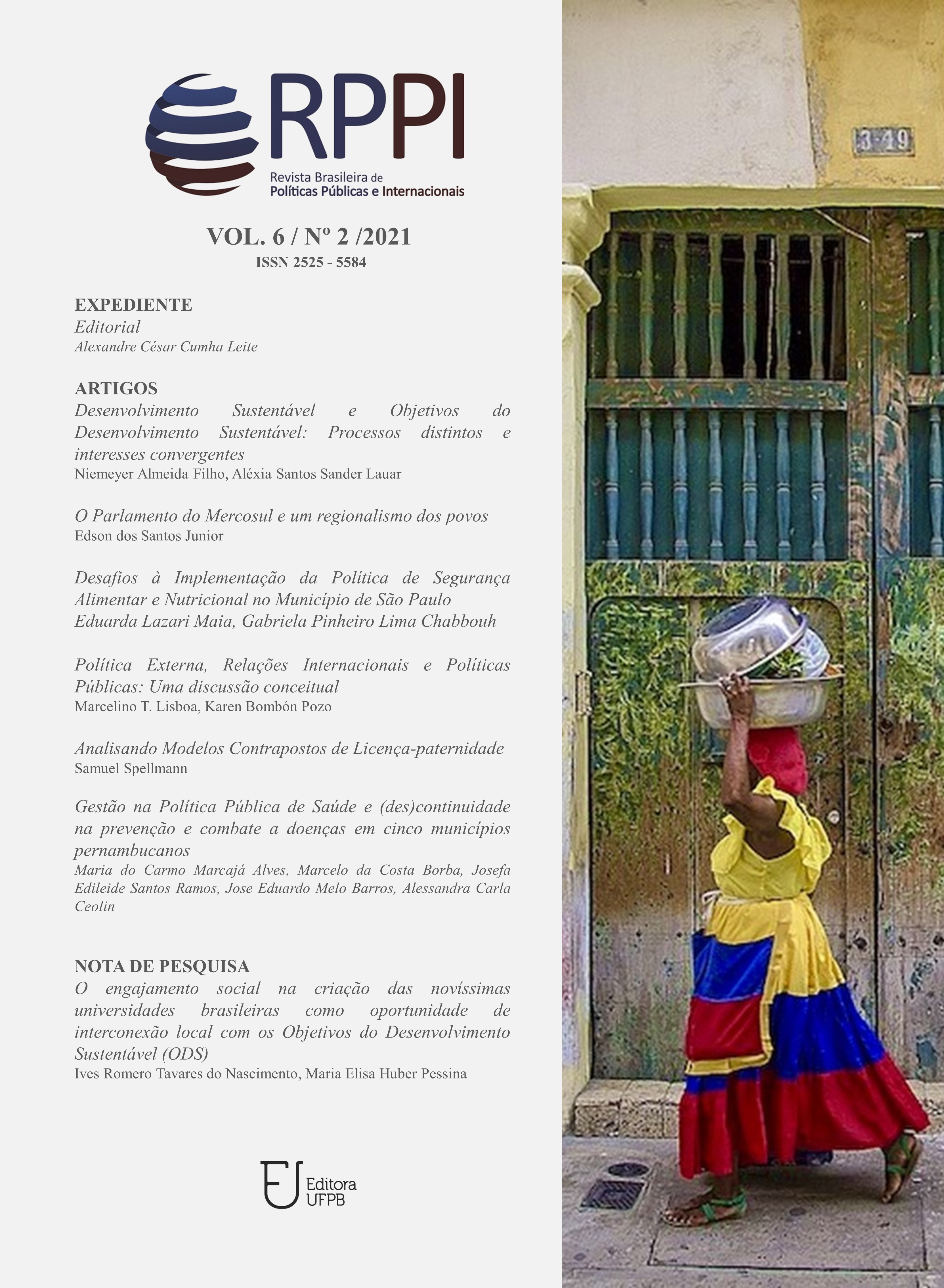Challenges to the Implementation of the Food and Nutritional Security Policy in the Municipality of São Paulo
DOI:
https://doi.org/10.22478/ufpb.2525-5584.2021v6n2.60027Keywords:
Food and Nutritional Security, São Paulo City Hall, Sustainable Development GoalsAbstract
The article explores the implementation of goals 2.1 and 2.2 of the Sustainable Development Goals (SDGs) of the United Nations, understood as equivalent to the implementation of Food and Nutritional Security (SAN) policies in the city of São Paulo, using as a theoretical framework the Mark H. Moore's strategic tripod. The work uses two methodological strategies: the analysis of public documents and the application of a questionnaire to the members of the Municipal ODS Commission. From the collected data, the authors analyze: the inclusion of SAN in the public policy agenda, being perceived as a public value to be pursued by the municipal administration; the sources of legitimacy and support of SAN in the city of São Paulo and, finally, the operational capacity of the City of São Paulo to guarantee the effectiveness of SAN. It is concluded that: SAN policy is configured as a public value, given its presence in the main instruments of municipal planning; there is timid legitimacy and support around the issue, mainly conferred by citizens and the City Hall faces challenges of structure, process and sustaining results in the implementation of the SAN policy, despite those involved evaluating positively the municipal capacities.
Downloads
Downloads
Published
Issue
Section
License
Copyright (c) 2021 Eduarda Lazari Maia, Gabriela Pinheiro Lima Chabbouh

This work is licensed under a Creative Commons Attribution 4.0 International License.
Autores que publicam nesta revista concordam com os seguintes termos:- Autores mantém os direitos autorais e concedem à revista o direito de primeira publicação, com o trabalho simultaneamente licenciado sob a Licença Creative Commons Attribution que permite o compartilhamento do trabalho com reconhecimento da autoria e publicação inicial nesta revista.
- Autores têm autorização para assumir contratos adicionais separadamente, para distribuição não-exclusiva da versão do trabalho publicada nesta revista (ex.: publicar em repositório institucional ou como capítulo de livro), com reconhecimento de autoria e publicação inicial nesta revista.
- Autores têm permissão e são estimulados a publicar e distribuir seu trabalho online (ex.: em repositórios institucionais ou na sua página pessoal) a qualquer ponto antes ou durante o processo editorial, já que isso pode gerar alterações produtivas, bem como aumentar o impacto e a citação do trabalho publicado (Veja O Efeito do Acesso Livre).




_.jpg)






.png)


.jpg)
_.png)
